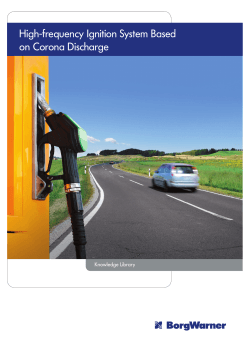
Assessing Wildfire Hazards in the Home Ignition Zone â 2
Assessing Wildfire Hazards in the Home Ignition Zone — 2-Day Seminar Sponsored by: Southwest Missouri Resource Conservation & Development Council and the Missouri Dept. of Conservation, Forestry Division Assessing Wildfire Hazards in the Home Ignition Zone is a two-day NFPA classroom seminar developed to 1) increase an understanding and competency in wildland/urban interface fire mitigation, 2) assist wildfire mitigation and prevention professionals, regardless of organizational affiliation, in assessing risks to individual homes in wildland, forested, or grassland areas and 3) encourage and make recommendations for corrective mitigation measures to residents and homeowner associations. This interactive and updated NFPA® seminar based on fire science research into how homes and other structures ignite during wildfires and NFPA 1144: Standard for Reducing Ignition Hazards from Wildland Fire covers wildfire behavior, structure exposure, and the concept of the Home Ignition Zone. For the first time, the Assessing Wildfire Hazards in the Home Ignition Zone Seminar offers a Certificate of Educational Achievement available for a nominal fee through an online exam taken after the course. Earn the Certificate to demonstrate proficiency in your understanding of seminar topics. Date: Tuesday & Wednesday, May 19-20, 2015 Registration: No registration fee required, but it is suggested you pre-register by May 5, 2015 to take advantage of important pre-reading material from NFPA provided through a link. Breakfast & lunch will be provided both days of the seminar for those y! a d o T who are registered by May 12, 2015. p U Sign Email Bill Altman to receive a pre-registration form and lodging information : act ont C Check-in: Class Hours: Location: Contact: Email: Tuesday, May 19 - 7:30 — 8:00 AM 8:00 AM - 4:30 PM each day, includes field trip on afternoon of May 20. DoubleTree Hotel, 2431 North Glenstone Avenue, Springfield, MO Bill Altman, Wildland Fire Management Specialist, Southwest Missouri RC&D Bill.Altman954@gmail.com Module 1 Introduction — Wildfire and the Interface Discuss wildfire in the United State, the History and Today, climate change, the development of the interface and the impact of wildfire emergencies on emergency service providers. Module 2 Fire Growth and Development in the Interfact Discuss the fire triangle, the research that led to the home ignition zone (HIZ) concept that helps to reduce wildland/urban fire disasters, heat transfer from the wildfire including fire brands, ground cover, high intensity fire and how structures burn when exposed to wildfire. Module 3 The Structure and the Site Identify and prioritize mitigation actions that will reduce the ignitability of the HIZ by conducting a hazard assessment, provide information that will assist the resident in recognizing the risk and hazard elements, discuss fuels that expose homes and communities to loss from wildfires, discuss landscaping around the structure, general housekeeping on the site, utilities, construction and new research on construction elements. Module 4 The Home Ignition Zone Concept Introduction the the home ignition zone from Chapter 4 of NFPA 1144, the local conditions around the home and overlapping HIZs. Module 5 Conducting the Analysis - Pulling it all Together Have an understanding of fire growth and development, building construction and potential hazards in ignition zone to access a structure and develop mitigation recommendations prior to an emergency. Discuss short term recommendations based on evaluation during an emergency. Module 6 Communicate the Findings Discuss how to communicate evaluation findings and mitigation recommendations to the home owner/occupant. Module 7 Conclusion Understand the key elements of NFPA 1141 and 1141and discuss the benefits of Firewise and Fire Adapted Communities and how everything ties into identifying hazards and preparing a home ignition zone assessment. Earn CEUs | Each attendee will earn 1.4 valuable CEUs that will keep them up-to-date on their training. NFPA On-Site Workshops are accredited by the International Association of Continuing Education and Training, (IACET), the industry standard for quality and excellence in professional development programs.
© Copyright 2025





















